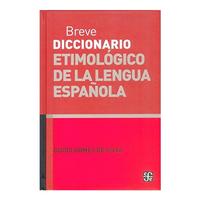13 - La raíz de la palabra "escuela"
13 - Die Wurzel des Wortes "Schule".
13 - The root of the word "school".
13 - La racine du mot "école".
13 - 「学校」の語源。
13 - žodžio "mokykla" šaknis.
13 - De stam van het woord "school".
13 - A raiz da palavra "escola".
13 - Roten till ordet "skola".
13 - “学校”一词的词根
LOCUTORA
LOCATOR
A ver si sabes, amigo.
Let's see if you know, friend.
ببین دوست داری میدونی
Y si no sabes, te lo digo.
And if you don't know, I tell you.
¿Qué significa la palabra “escuela”?
What does the word "school" mean?
HOMBRE
MAN
¿Escuela?
School?
Eso lo sabe cualquiera.
That anyone knows.
هر کسی این را می داند.
LOCUTORA
ANNOUNCER
Pues dígame qué significa.
|tell me||
Well tell me what it means.
خوب بگو یعنی چی
HOMBRE
MAN
Escuela quiere decir, no sé...
School means, I don't know ...
مدرسه یعنی نمیدونم...
el lugar
the place
مکان
donde los niños aprenden a leer y a escribir.
where children learn to read and write.
Y lo más importante,
And the most important,
و از همه مهمتر،
donde aprenden a portarse bien y a obedecer.
|||behave||||to obey
where they learn to behave and obey.
جایی که یاد می گیرند خوب رفتار کنند و اطاعت کنند.
LOCUTORA
Pues se equivoca, amigo mío.
||is wrong||
Well, you're mistaken, my friend.
خب اشتباه میکنی دوست من
Se equivoca de medio a medio.
||of|||
He is completely mistaken.
او کاملا در اشتباه است.
LOCUTOR
ANNOUNCER
“Escuela” viene del griego “skolia”
|||Greek|schools
"School" comes from the Greek "skolia"
"مدرسه" از یونانی "skolia" آمده است.
y significa “lugar de diversión”.
||||fun
and means "place of fun."
و به معنی "محل تفریح" است.
LOCUTORA
Skolia.
Skolia
Tiempo de recreación, tiempo libre, vacaciones.
Time||recreation|||
Recreation time, free time, vacations.
اوقات فراغت، اوقات فراغت، تعطیلات.
Todo eso significaba antes la palabra “escuela”.
||||||school
All of that meant before the word "school."
همه اینها قبلاً به معنای کلمه "مدرسه" بود.
HOMBRE
MAN
Pero no puede ser porque actualmente es todo lo contrario.
|||||currently||||
But it can't be because it's the opposite today.
اما نمی تواند باشد زیرا در حال حاضر کاملا برعکس است.
Para los niños, para las niñas, la escuela es una pesadez.
||||||||||heaviness
For boys, for girls, school is a heaviness.
برای پسران و دختران، مدرسه یک مشکل است.
No quieren ir.
Don't||
They do not want to go.
آنها نمی خواهند بروند.
Se aburren.
They|
They are bored.
حوصله شان سر می رود.
LOCUTOR
ANNOUNCER
Pues en el mundo griego no era así.
Well, in the Greek world it wasn't like that.
خب، در دنیای یونان اینطور نبود.
Los chicos se divertían,
||themselves|were having fun
The boys had fun,
پسرها سرگرم بودند،
hacían trucos de palabras,
|tricks||
they did word tricks,
conocían los números y las matemáticas
they knew||||the|
they knew numbers and mathematics
haciendo concursos.
|contests
Making contests
Aprendían jugando, riendo.
They learned||laughing
They learned playing, laughing.
LOCUTORA
No tenían que copiar ni repetir ni aprender nada de memoria.
|||to copy||repeat|||||memory
They did not have to copy or repeat or learn anything by heart.
LOCUTOR
No recibían castigos de los instructores.
|they received|punishments|||instructors
They received no punishment from the instructors.
LOCUTORA
Lo contrario de “skolia” era “askolia”
|||||asocial behavior
The opposite of "skolia" was "askolia"
que significaba el trabajo, el deber, el esfuerzo.
||the|||duty||
that meant work, duty, effort.
LOCUTOR
Y tu escuela,
And your school,
¿cómo es?
How is it?
¿”skolia” o “askolia”?
scolia||askolia
"Skolia" or "askolia"?

